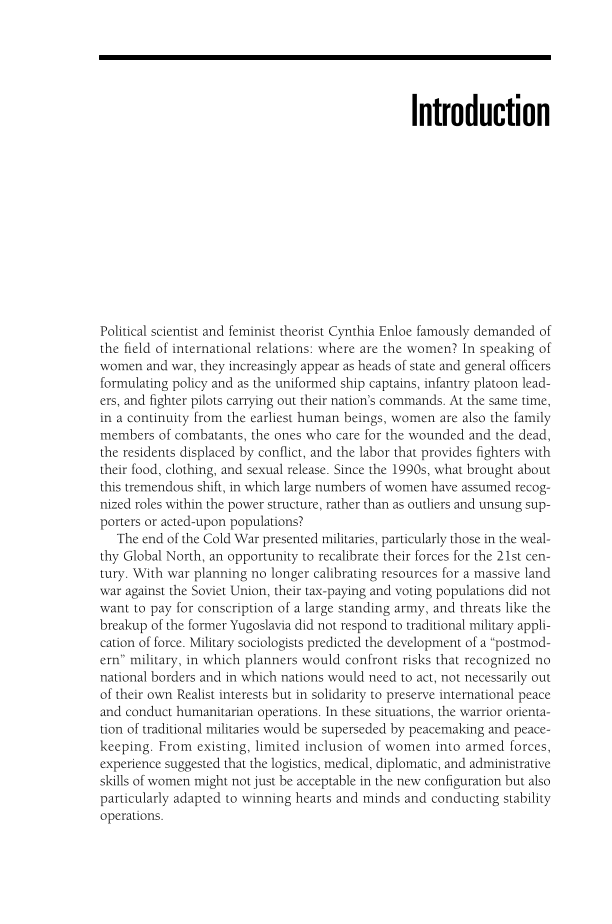Introduction Political scientist and feminist theorist Cynthia Enloe famously demanded of the field of international relations: where are the women? In speaking of women and war, they increasingly appear as heads of state and general officers formulating policy and as the uniformed ship captains, infantry platoon lead- ers, and fighter pilots carrying out their nation’s commands. At the same time, in a continuity from the earliest human beings, women are also the family members of combatants, the ones who care for the wounded and the dead, the residents displaced by conflict, and the labor that provides fighters with their food, clothing, and sexual release. Since the 1990s, what brought about this tremendous shift, in which large numbers of women have assumed recog- nized roles within the power structure, rather than as outliers and unsung sup- porters or acted-upon populations? The end of the Cold War presented militaries, particularly those in the weal- thy Global North, an opportunity to recalibrate their forces for the 21st cen- tury. With war planning no longer calibrating resources for a massive land war against the Soviet Union, their tax-paying and voting populations did not want to pay for conscription of a large standing army, and threats like the breakup of the former Yugoslavia did not respond to traditional military appli- cation of force. Military sociologists predicted the development of a “postmod- ern” military, in which planners would confront risks that recognized no national borders and in which nations would need to act, not necessarily out of their own Realist interests but in solidarity to preserve international peace and conduct humanitarian operations. In these situations, the warrior orienta- tion of traditional militaries would be superseded by peacemaking and peace- keeping. From existing, limited inclusion of women into armed forces, experience suggested that the logistics, medical, diplomatic, and administrative skills of women might not just be acceptable in the new configuration but also particularly adapted to winning hearts and minds and conducting stability operations.
Document Details My Account Print multiple pages
Print
You have printed 0 times in the last 24 hours.
Your print count will reset on at .
You may print 0 more time(s) before then.
You may print a maximum of 0 pages at a time.





































































































































































































































































































































































